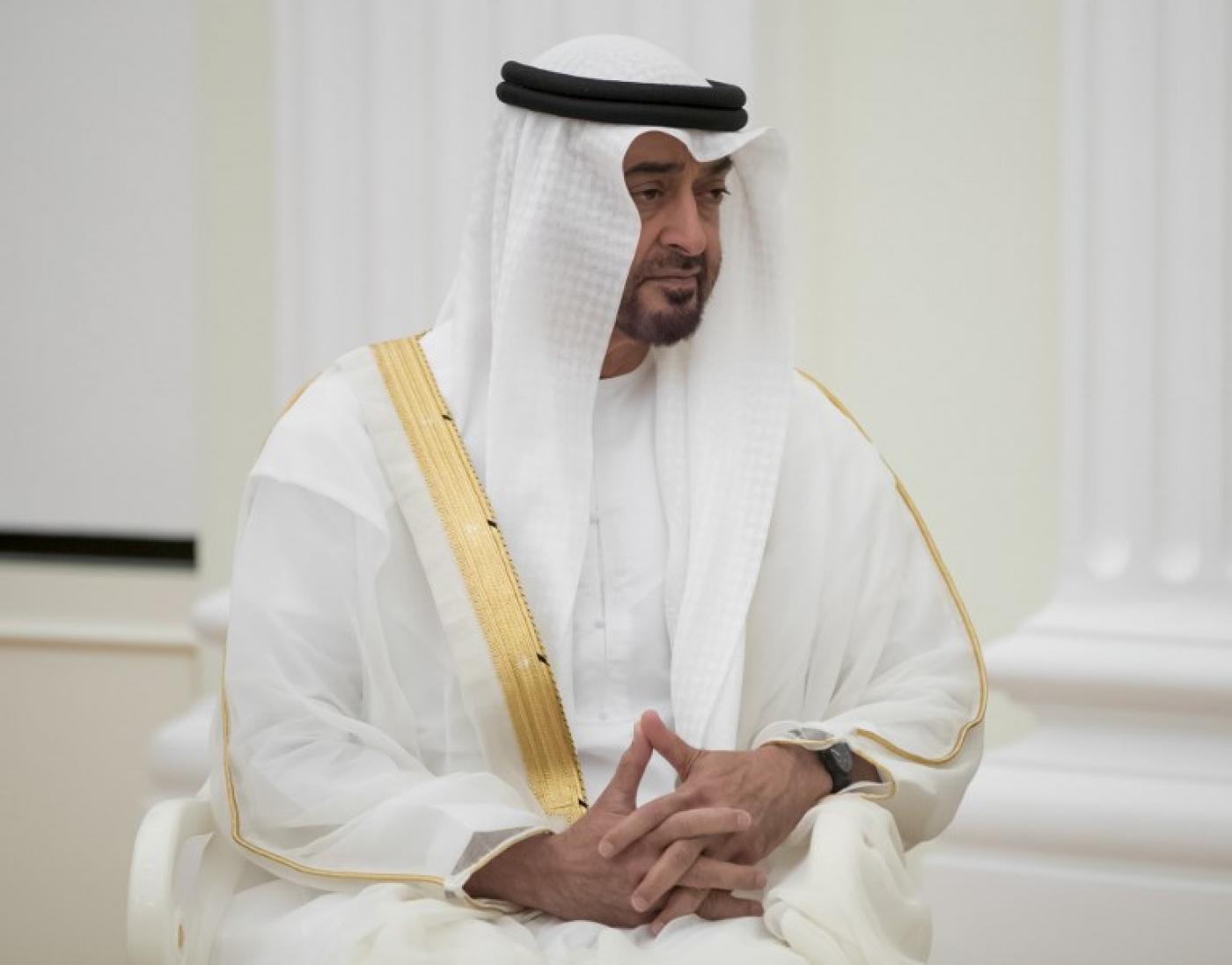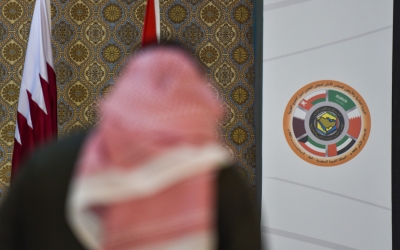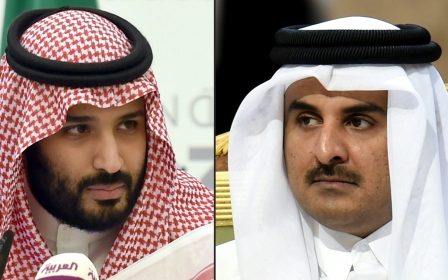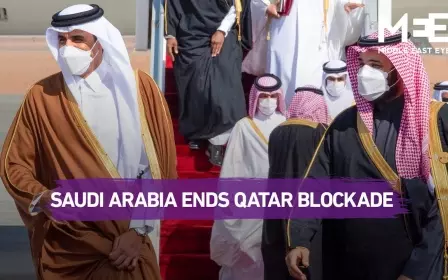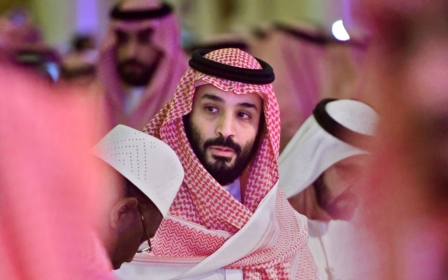Qatar blockade: The war of narratives is far from over
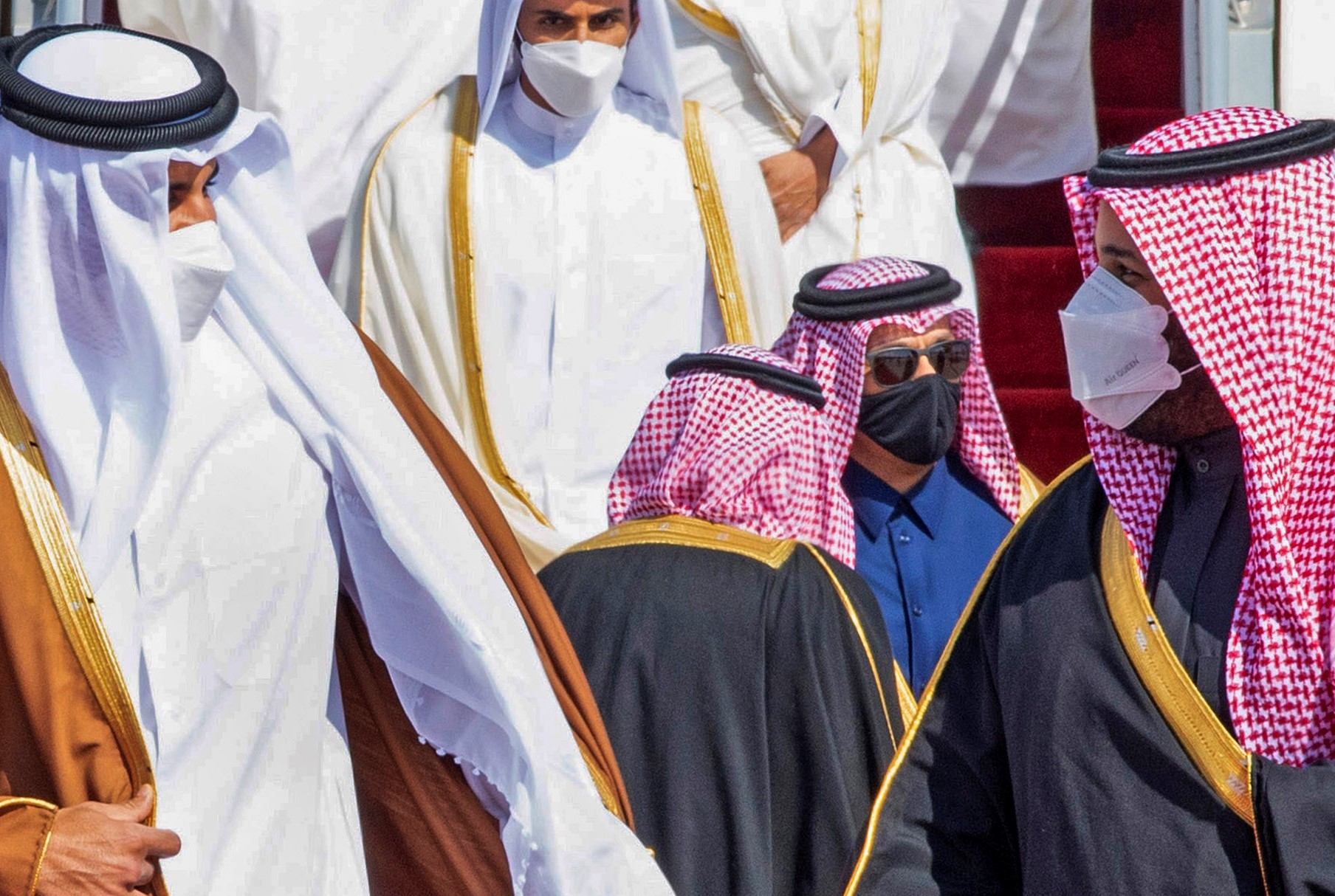
For the past three and half years, the scene of Qatar’s Emir Tamim bin Hamad being received in Saudi Arabia with a tight hug from Crown Prince Mohammad bin Salman was unimaginable.
While the move, which took place during the Gulf Cooperation Council's (GCC) 41st summit held in the city of al-Ula, marks the end of the Saudi-led blockade against Qatar, it can only begin to address the underlying root causes of the conflict, of which the 2017 blockade was just a symptom.
It is not about who won or lost. In the end it was the region and its people as a whole that lost 43 months to an entirely superfluous crisis
The conflict between Saudi Arabia, the United Arab Emirates (UAE) and Qatar is at its core ideological and ontological in nature: it is a conflict over world views on the sense of self and a person's role in the radically changing geopolitical theatre of the post-Arab Spring region.
Washington has been and remains the key audience of the harmful war over narratives that followed on from a failed military and diplomatic campaign against Qatar. The architects of the crisis in Abu Dhabi and Riyadh always curated their actions and stories so as to appeal to US President Donald Trump, whose election in 2016 was a key catalyst for this conflict to flare up.
It's therefore not surprising that the Trump administration, which played the role of arsonist, is now trying to use this occasion to appear as the firefighter. However, although pressure from the outgoing Trump administration on Saudi Arabia was key in bringing the crisis to an end, the motivation of Trump's son-in-low and White House senior advisor Jared Kushner, who attended the summit, and his anti-Iran hawks, was not so much about addressing the deeper roots of the underlying Gulf conflict as it was about adding to its maximum pressure campaign against Tehran.
New MEE newsletter: Jerusalem Dispatch
Sign up to get the latest insights and analysis on Israel-Palestine, alongside Turkey Unpacked and other MEE newsletters
And with the incoming Biden administration promising to be tougher on Riyadh, it was a pragmatic decision by the Saudi crown prince to use this opportunity to end at least one of the crises he helped create. As the costs of the Gulf standoff have long outweighed its benefits for the kingdom, admitting policy failure and u-turning on the Qatar issue was thereby much easier than addressing Saudi involvement in Yemen, another contentious issue on the list of the President-elect.
Winners and losers
Ending the Qatar blockade offered the Saudi crown prince a means to present himself to Washington as a constructive player in the region, while at the same time assuming leadership in the Gulf emerging from the shadows of Abu Dhabi Crown Prince Mohammed bin Zayed, the real mastermind behind the rift.
The UAE leader's absence from negotiations over the past months suggests that Abu Dhabi could end up just as isolated in the GCC as it had been in 2014. MBZ's relative ideological inflexibility over his alleged protege MBS will likely make it more difficult for Abu Dhabi to be pragmatic on the issue of Gulf reconciliation.
At this juncture, it is not about who won or lost. In the end it was the region and its people as a whole that lost 43 months to an entirely superfluous crisis. After all this farce, Qatar agrees to drop the legal cases against its neighbours that were a mere consequence of this blockade. Moreover, Doha will tone down its mostly Al Jazeera-administered criticism of Saudi and Emirati policies, which again were mostly a mere consequence of the blockade.
Meanwhile, the 13 demands imposed on Qatar by the blockading countries evaporated into thin air - demands so absurd that they were never going to be met. Qatar will remain Qatar: a sovereign nation state with its own foreign and security policy, its own extra-regional relations, its own diplomacy and standing in the Gulf.
Qatar as the victim seems to have benefited the most from this rift, emerging more politically, economically and strategically resilient. Saudi Arabia and the UAE as the bullies on the contrary appear beaten, finally conceding that their impulsiveness failed them.
A deeper-rooted conflict
Yet, looking beyond the blockade and at the crisis as a mere symptom of a much deeper-rooted ideational conflict, then merely dealing with the symptoms to buy credit in Washington will not be enough to bring about a sustainable resolution in the Gulf.
At the heart of the rift remains an ontological rift over how to reorder the Arab world post-Arab Spring, with diametrically opposed visions coming primarily from Doha and Abu Dhabi. While Qatar is an advocate of socio-political pluralism as a means to bring about stability in the conflict-ridden region, the UAE coherently pursued a policy of authoritarian stability, propping up strongmen such as Abdel Fattah el-Sisi in Egypt, Khalifa Haftar in Libya and Bashar al-Assad in Syria.
While Qatar supported the revolutions a decade ago, the UAE has since developed into the region’s great counter-revolutionary power.
Qatar, although much quieter and less of a risk-taker since 2014, will hardly reverse its stance on Iran and Turkey, or its support for a variety of civil society actors and mobilisers in the Arab world. At the same time, Al Jazeera will not surrender its ambition to provide a "voice to the voiceless".
What this means is that although pragmatism might prevail for the moment, Abu Dhabi in particular will not give up using its extensive disinformation and lobbying networks to target Qatar. While the conflict might disappear from the headlines in the Gulf, the war over narratives will continue, outsourced to proxies and surrogates across the region.
Grand strategic visions and narratives will continue to clash in North Africa, the Levant, Yemen and the Horn of Africa. The battle for the future order of the Arab world that is primarily fought by the Gulf monarchies is far from over.
A decade after the Arab Spring these small, albeit meaningful, confidence building measures between GCC members are certainly a step in the right direction, but can only ever bring about a cold peace for the sake of Gulf unity. On a regional scale, however, the ideological division over who to support in Libya, Syria, Sudan or Yemen will continue to pit one monarchy against the other.
The views expressed in this article belong to the author and do not necessarily reflect the editorial policy of Middle East Eye.
Middle East Eye delivers independent and unrivalled coverage and analysis of the Middle East, North Africa and beyond. To learn more about republishing this content and the associated fees, please fill out this form. More about MEE can be found here.



